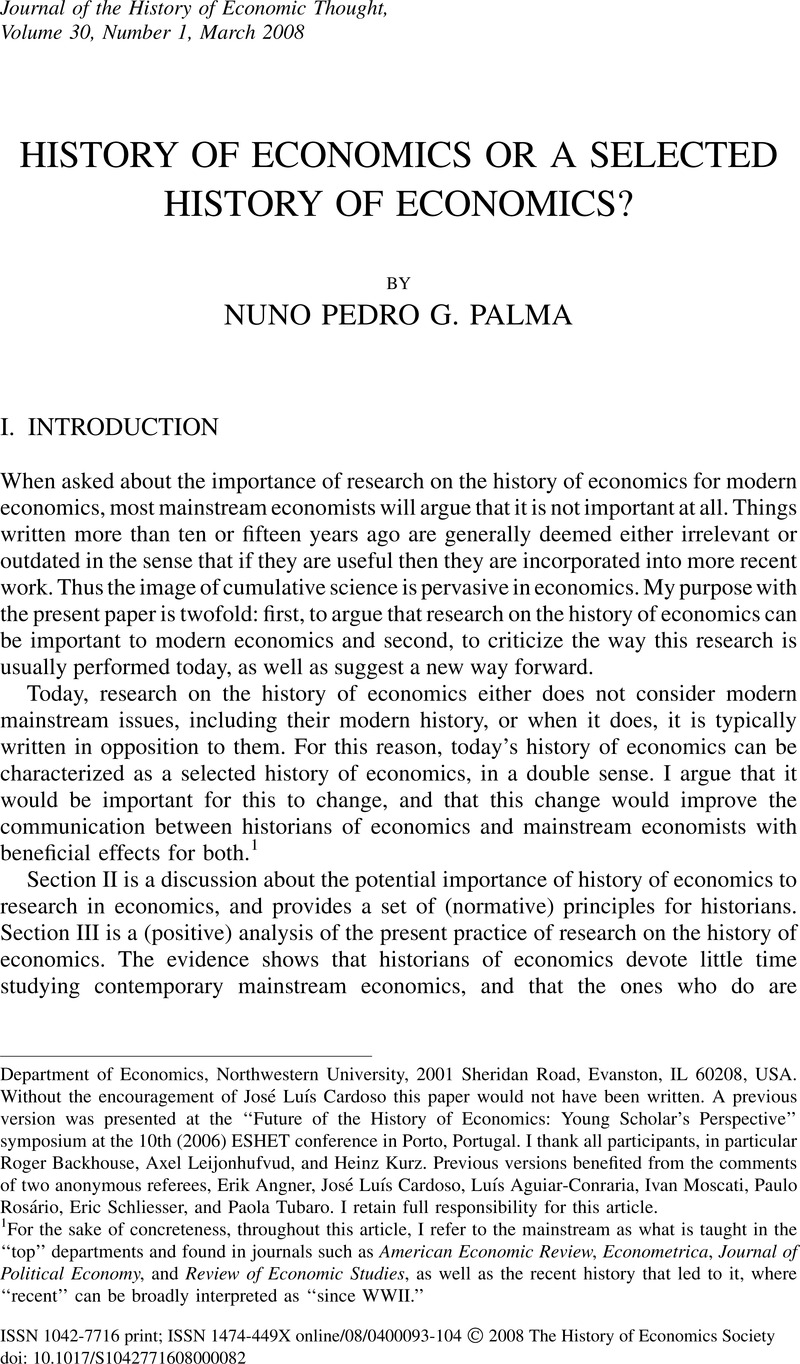Crossref Citations
This article has been cited by the following publications. This list is generated based on data provided by Crossref.
MOSCATI, IVAN
2008.
MORE ECONOMICS, PLEASE: WE'RE HISTORIANS OF ECONOMICS.
Journal of the History of Economic Thought,
Vol. 30,
Issue. 1,
p.
85.
Stapleford, Thomas A.
2010.
A Research Annual.
Vol. 28,
Issue. ,
p.
329.
Mielcarek, Andrzej
2010.
Rzut oka na historię historii myśli ekonomicznej jako dyscypliny akademickiej.
Roczniki Nauk Rolniczych. Seria G, Ekonomika Rolnictwa,
Vol. 97,
Issue. 2,
p.
90.
Cruz Hidalgo, Esteban
Parejo Moruno, Francisco Manuel
Rangel Preciado, José Francisco
and
Garzón Espinosa, Eduardo
2022.
Reflexiones acerca del estado del arte en Historia del Pensamiento Económico tras la Gran Recesión.
Iberian Journal of the History of Economic Thought,
Vol. 9,
Issue. 1,
p.
1.
Marcuzzo, Maria Cristina
2024.
Economic Theories, Protagonists and Facts.
p.
29.



